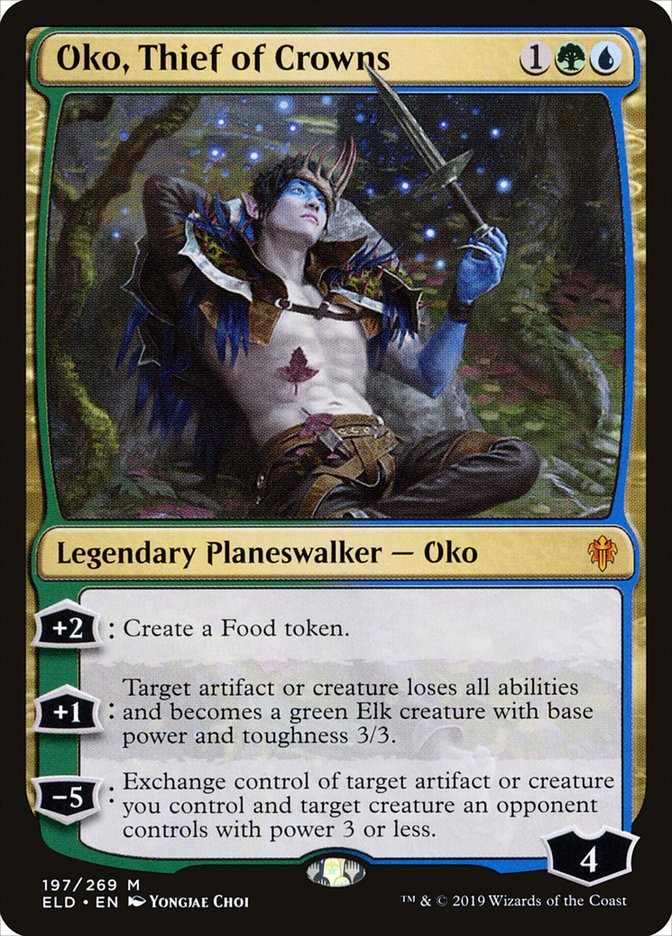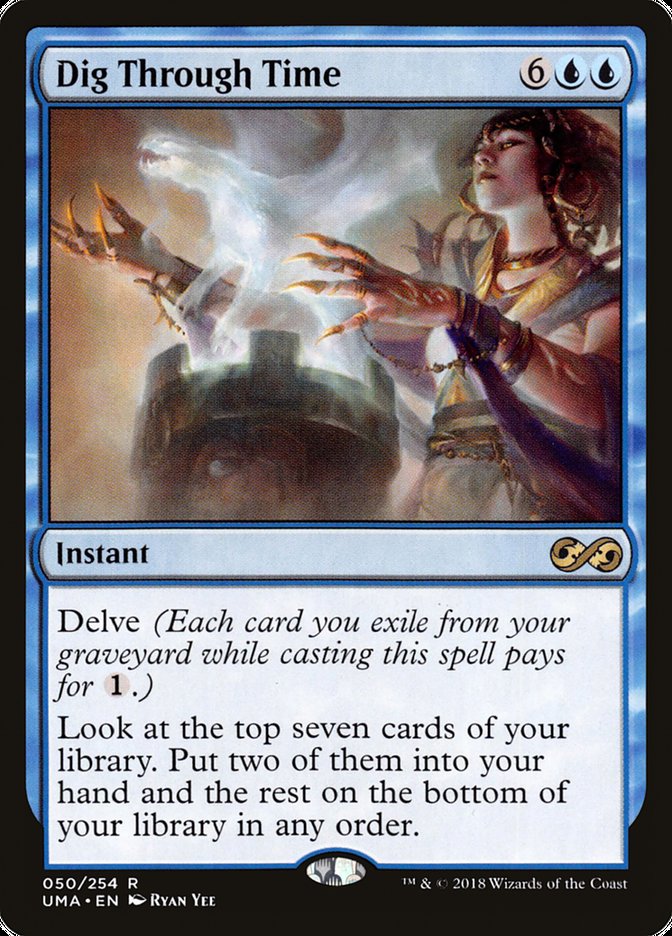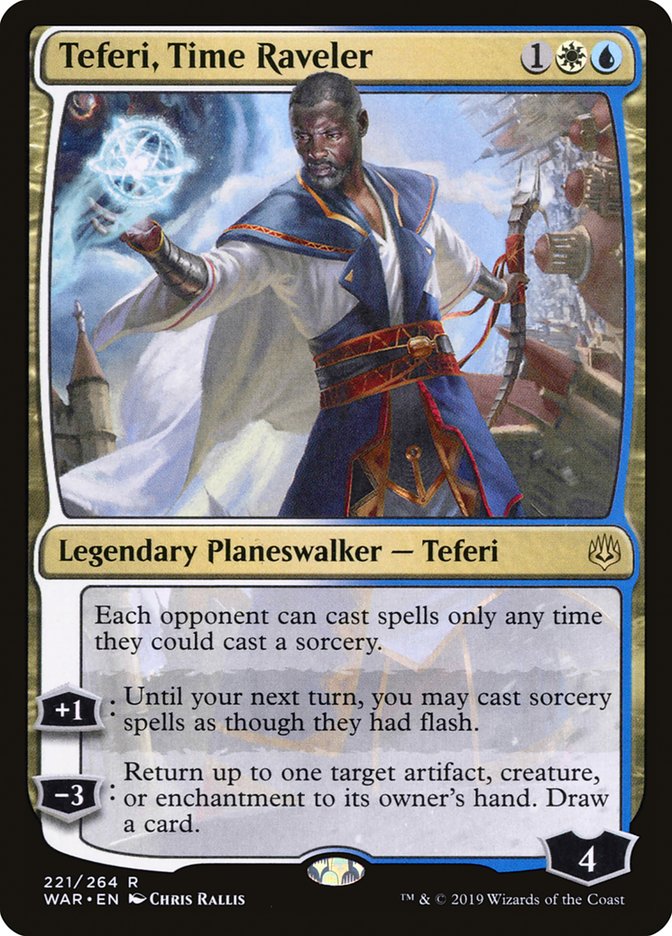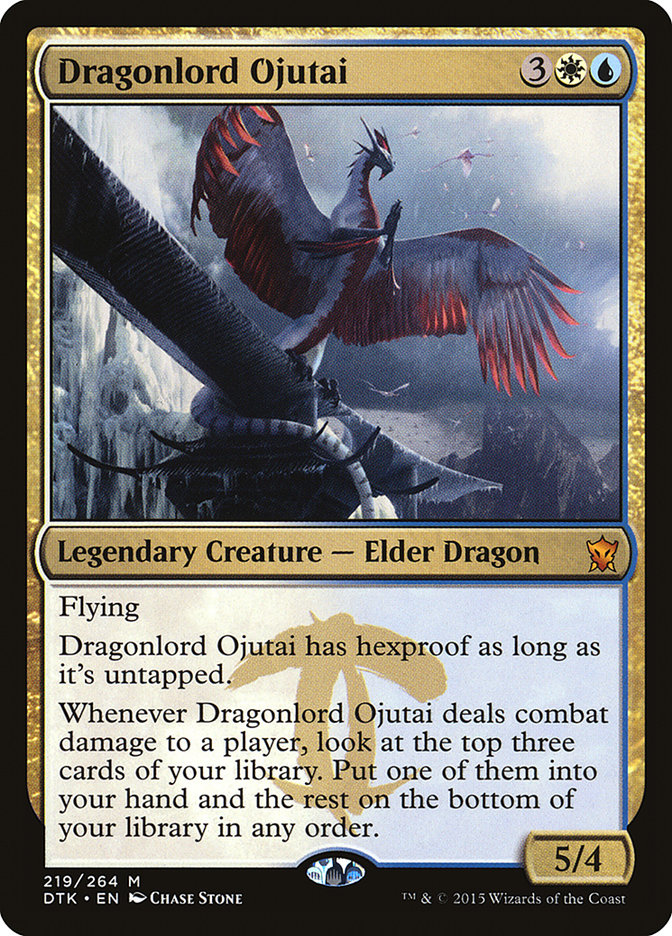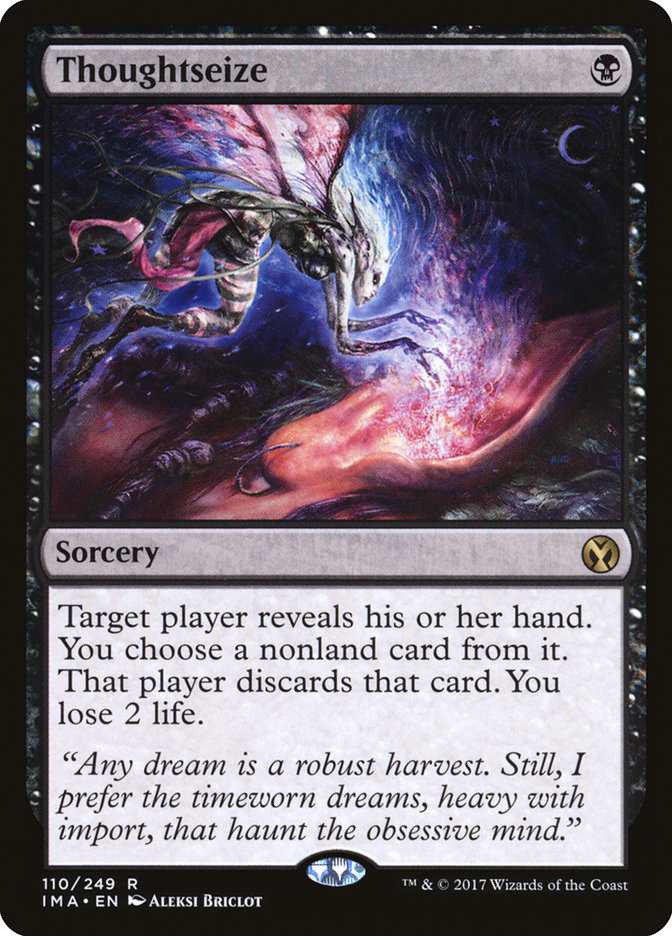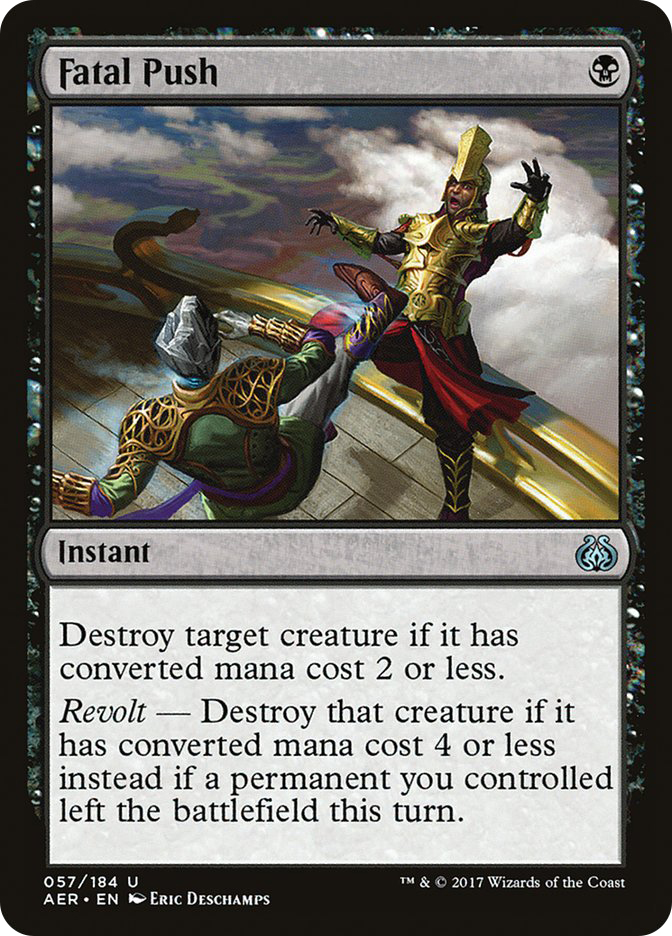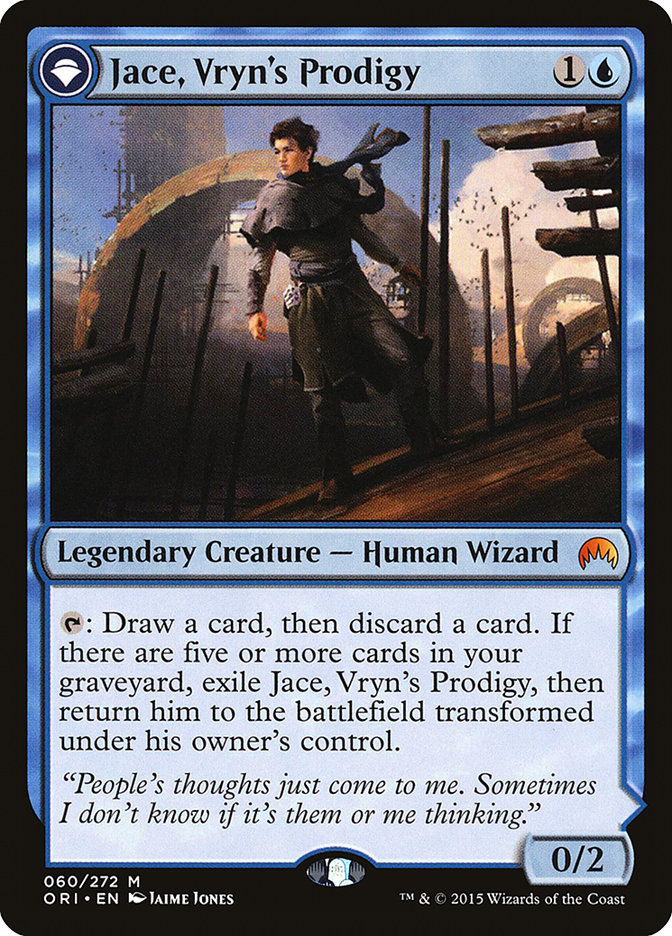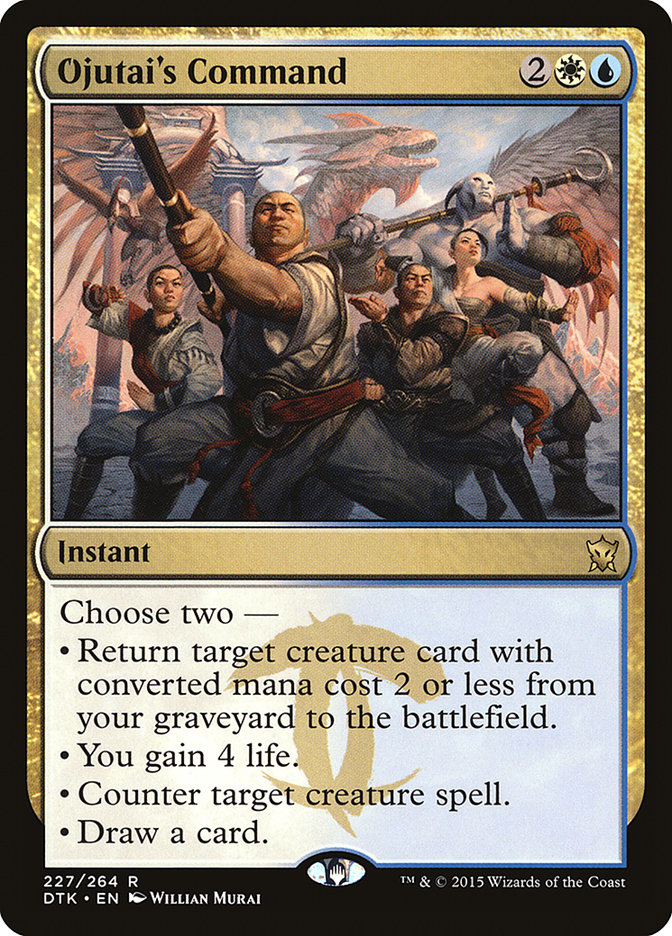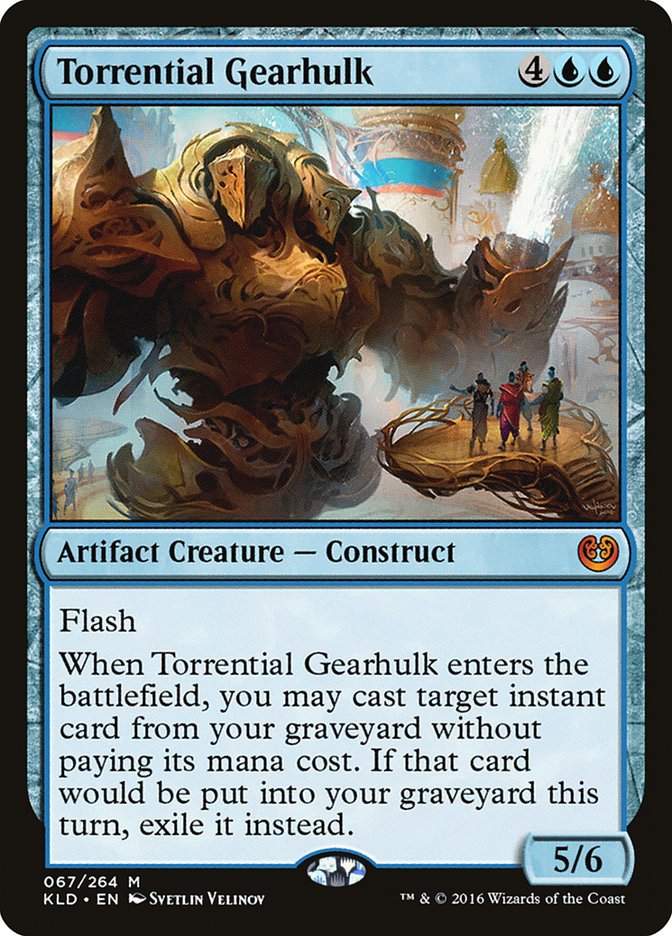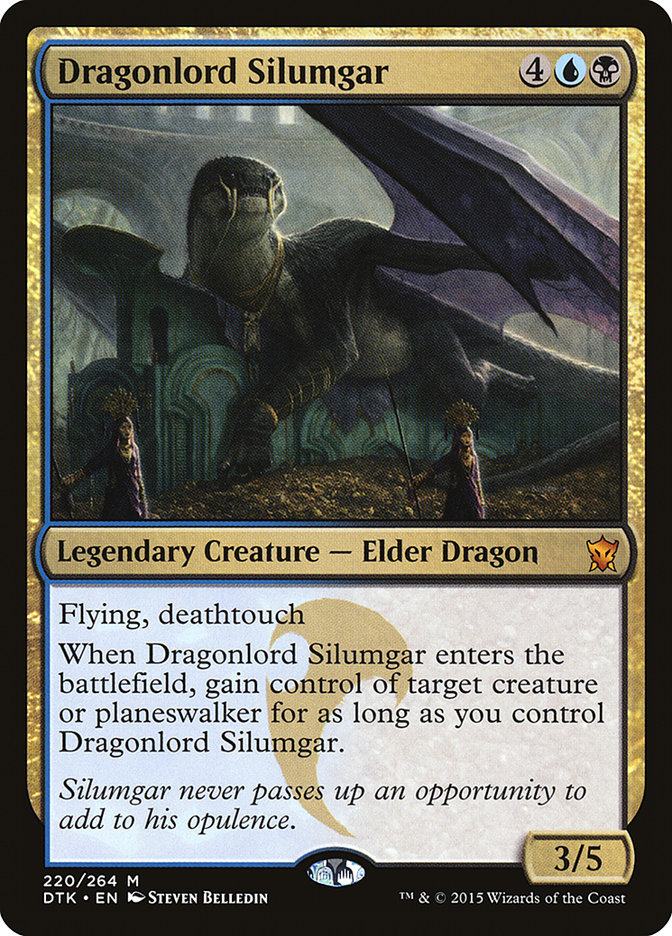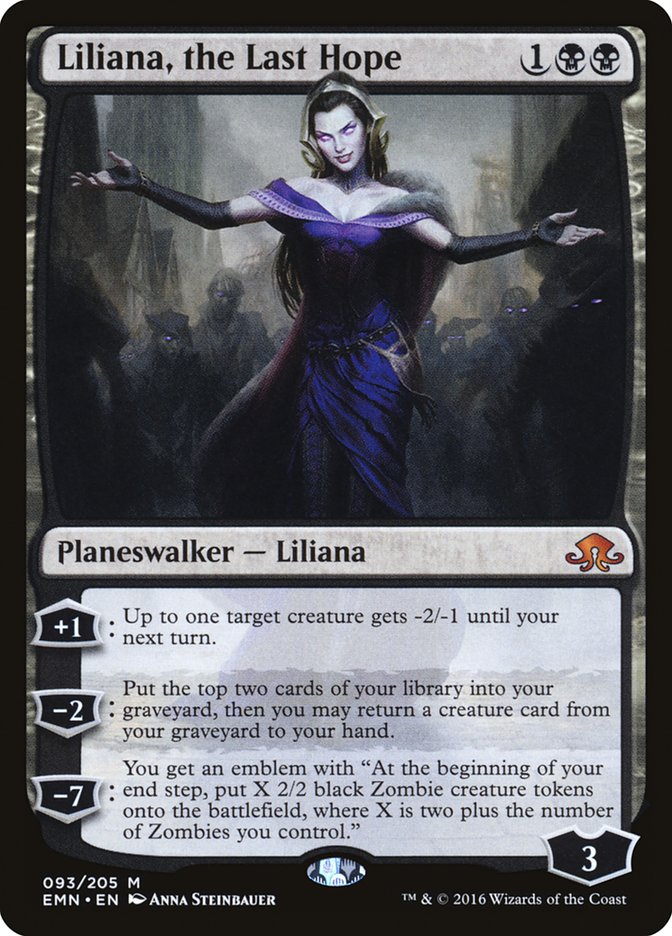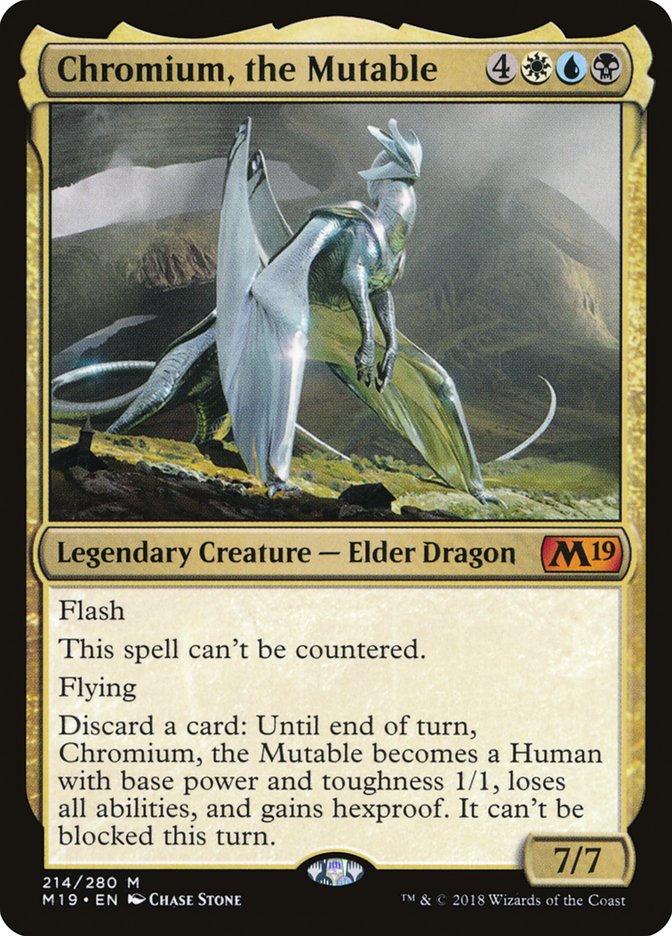Big changes are ahead for us card-slinging fans. A lot has occurred since my last article a couple of weeks ago and each move made seems to be beneficial to all the competitive folks out there. The creation of Pioneer; an obvious future banning announcement of Oko, Thief of Crowns on November 18th; and the fractional invite system rolled out by Organized Play are all positive changes that I see on the horizon.
Few have been as critical as I have been to Wizards of the Coast, as I saw a beautiful system torn apart for short-term gain. The fractional invite system, along with the qualification opportunities tied in the SCG Tour, give me hope again where I had all but lost it earlier this year. I’m convinced that our concerted effort and the public pressure from stakeholders ultimately influenced the company’s decision to keep an accessible path to professional glory. They would have been very content with the Magic Arena and MPL budget vacuum, but the Players Tour and the ways to qualify are a fine compromise. It may not be what we had before, but it still is high-level play for a decent chunk of change. Unfortunately, I will not be taking part in the compromise that I worked very hard to forge.
The SCG Tour was my home at one point and I have wanted to jump back in the action full-time for the last seven years. Starting in January, I will be attending most tournaments on the Tour, as well as drag a few former professionals with me as we look to a nice change of venue. The changes with Organized Play will help those new players chase the professional dream, but the tournament structure of the SCG Tour is a much better fit for me in my tournament golden years.
As for bannings, Oko, Thief of Crowns has no shot of sticking around in Standard. I know that this is not a hot take now, but I knew it was problematic as I campaigned against Field of the Dead.
As some have said, Oko should absolutely go with Field Monday, but there is zero chance that happens. Chase mythic of the new set, at the start of a new Standard, isn't going anywhere
Field is a goner though. Shout out to the fellow "whiners" out there that want a good Standard!
— Shaheen Soorani (@shaheenmtg) October 19, 2019
This tweet says it all for where I stood on the bannings in Standard. Oko, Thief of Crowns had to get removed with Field of the Dead to make Standard a balanced format again. I knew that it wouldn’t happen, as the Mythic from the set just released, so I began what was one of the more painful Mythic Championship testing sessions of my career. Standard was worse with Field of the Dead, but only slightly. Moving the Invitational out of Standard and into Pioneer was a genius move by management. Until November 18th, the most popular format in Magic is a bit broken. With that being the case, I can confidently tell all of you that I’m playing Esper Control at my last Mythic Championship next week!
I could write a short novel on how awesome Standard is going to be after Oko, Thief of Crowns is removed, but you all have some Pioneer tournaments coming up. At first, I was completely overwhelmed by the announcement. Spending all my time on Standard and Limited for the Mythic Championship and having Modern looming from the Invitational was too much for my busy life to handle. Adding Pioneer to the mix nearly crushed my enthusiasm until I had a chance to get my first matches under my belt.
There has been a lot of talk about Sphinx’s Revelation from the control caucus, but I think some have forgotten about a banned item floating around in the control wheelhouse. Dig Through Time is the end-all, be-all of card draw, even with the absence of fetchlands. When something this powerful exists, I must find a way to make it work. That means tapping into the power of early, cheap disruption in order to make the delve process feasible. Even when used at five mana, it’s still the best way to guarantee pocketing the cards required for survival.
With an emphasis on Dig Through Time, this does mean that I will not be playing Sphinx’s Revelation much in Pioneer. There’s a case to be made with a split, having an opportunity to gain a bunch of life in a pinch, but I’m suspicious of the power of the fastest aggro decks in the format. Tangoing with the removal that control has access to, and the ridiculous planeswalkers that dominated Standard while there, makes me confident that my favorite archetype has legs in the format.
Creatures (10)
Planeswalkers (4)
Lands (25)
Spells (21)

This is my first Pioneer list and it was a blast to play. One of my favorite creations was Esper Dragons and I had to give it a whirl in this brave new world. It packs quite a punch, getting a great deal of assistance from sets that never crossed paths with it during its Standard tenure. The biggest upgrade that this deck has received is easily Teferi, Time Raveler.
Teferi, Time Raveler will continue to be one of the most-played control cards until the day it is forcibly removed from competitive formats. It narrows the window of opponent interaction to sorcery speed, making our leader, Dragonlord Ojutai, effectively unkillable while attacking. Many of you remember what happens when this Dragon connects and things haven’t changed. Taking a direct hit results in the controller gaining a copy of Silumgar’s Scorn (if they didn’t already have it), preventing any potential strong follow-up.
This build makes dealing with Dragonlord Ojutai even more difficult than the sorcery-speed clause. Teferi, Time Raveler joins forces with Thoughtseize to disrupt in the draw step, reducing the amount of interaction an opponent can have to break apart the combo. These two cards have existed in older formats, but the removal of fetchlands has made it possible to toy with former Standard powerhouses like this one. Teferi, Time Raveler and Dragonlord Ojutai form my favorite one-two punch so far in Pioneer.
I mentioned Thoughtseize already, as it’s one of the most powerful cards in the Pioneer format. It’s still the trademark hand disruption spell, seeing play across the format spectrum regularly. There aren’t many drawbacks to using four in the maindeck of Esper Dragons, as I’ve included a way to discard them for fresh spells when they become a liability. In most other scenarios, a one-mana disruption spell allows the graveyard to continue to fill for Dig Through Time to have its impact.
Control deck construction in Pioneer will require these cheap spells to make sure that Dig Through Time lives up to its full potential. Esper Dragons is a perfect example of a deck that wants to snag specific cards for a cheap price tag. Sphinx’s Revelation would be fine in a deck like this but Dig Through Time is simply better. To continue to fuel the delve monster, we need to utilize the best removal spell Pioneer has to offer.
Fatal Push is an exciting option for Esper Dragons and black-based control decks. In the absence of Path to Exile, Fatal Push is the easy champion of the removal category. There are some mediocre options floating around in Pioneer, but this is an easy spell to play four of with confidence. The only other removal spells I play are a couple of Crux of Fate and my new favorite option, Drown in the Loch.
It may seem silly to use a removal/counter card that depends on the opponent’s graveyard in a world without fetchlands, but it works. Casting Thoughtseize, Fatal Push, and Silumgar’s Scorn early fills the opponent’s graveyard easily and quickly. This, along with the normal game flow from the opponent, makes Drown in the Loch a strong two-of in Esper Dragons. Once the format becomes more defined, there may be a need to pack more removal in the maindeck. At this point in Pioneer, the sideboard will bail us out with Supreme Verdict and Collective Brutality. Game 1 is all about early disruption with minimal removal, landing a big Dragon, and getting a hit in with the backup power of Dig Through Time.
With all these spells that can be duds at certain stages of the game, a hero is needed to loot them away for fresh options. The return of Jace, Vryn’s Prodigy brings a tear to my eye. I’m guilty of sneaking one copy in each of my Legacy and Modern decks, but here I get to play all four with minimal guilt. It loots all the excess hand disruption, dead removal, weak counterspells, and extra threats for items necessary at that very moment. It has a huge target on its back for removal, but that typically delays the opponent an additional turn. Delaying the opponent is a huge perk for this control strategy, as hitting the fifth land can win the game on the spot at times.
The flashback ability that arrives after transforming Jace isn’t the most powerful in this spot against aggro decks, since the removal is minimal. Against other decks, though, recasting Thoughtseize is a power play that can cripple the answers the opponent has to your looming Dragon. After sideboarding, we get to loot, transform, and cast Supreme Verdict or Crux of Fate more consistently. Having four sweepers after sideboarding is quite nice and may become a maindeck requirement if the format speeds up. I’m not a fan of having Supreme Verdict with Dragonlord Ojutai to start, so I hope it doesn’t come down to that.
Since there are a ton of Jace, Vryn’s Prodigy running around, Ojutai’s Command gets to join the team as well. Ojutai’s Command is the closest to Cryptic Command we have in Pioneer and gives us the opportunity to place our fallen two-drop back onto the battlefield at end of turn while drawing a card or gaining some life. It also counters a creature, which is an important feature in a list that runs light on removal. I love this card and can’t imagine playing a deck without it and Jace moving forward.
The last win conditions with Dragonlord Ojutai in the maindeck are Torrential Gearhulk and Dragonlord Silumgar. It may be incorrect to go down to one Dragonlord SIlumgar, but Torrential Gearhulk is busted in this control shell. Casting Dig Through Time for free is outrageously good and gives me a sweet backup plan if Esper Dragons doesn’t pan out. There will always be a Teferi, Hero of Dominaria and Torrential Gearhulk deck with my name on it, so be prepared for that write-up soon.
Dragonlord Silumgar is the next-best Dragon in the Esper colors and lands a spot for that reason. Stealing a planeswalker or creature is great, especially with Teferi, Time Raveler to protect you from instant-speed disruption. It’s a great bullet to have in a deck with Dig Through Time, but not something I want a ton of floating around. The split with Torrential Gearhulk is solid, giving this version of Esper Dragons a ton of versatility.
The sideboard rounds out the deck with help from Liliana, the Last Hope and Chromium, the Mutable. The latter is for those control mirrors out there, having a monstrous threat that won’t be easy to deal with. It happens to have the Dragon creature type, turning on all the Silumgar’s Scorns after untapping. More impressive than that is another three-mana planeswalker that can take over a game against blitz aggro and control decks alike.
If Esper Dragons doesn’t work out, the elements of this deck can easily morph into a traditional control deck. The cards listed are too powerful to be sidelined, so expect this Esper shell to ravage the Pioneer countryside for years to come.


